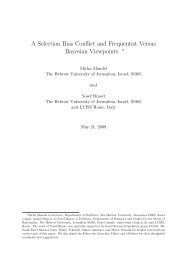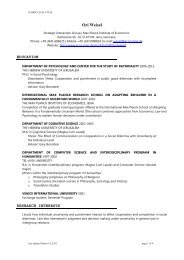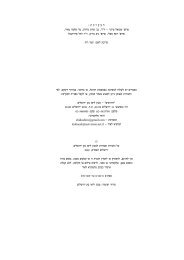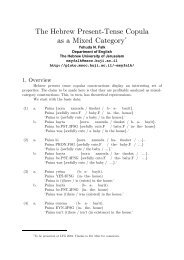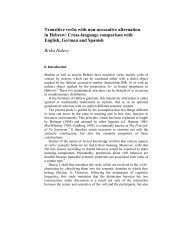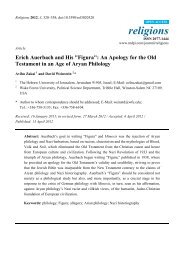The Federal Reserve May Be Politically ... - Pluto Huji Ac Il
The Federal Reserve May Be Politically ... - Pluto Huji Ac Il
The Federal Reserve May Be Politically ... - Pluto Huji Ac Il
Create successful ePaper yourself
Turn your PDF publications into a flip-book with our unique Google optimized e-Paper software.
One solution (Rogoff, 1985) is to appoint a central banker whose preferences over<br />
ination are sufficiently hawkish to produce, somewhat unwittingly, a socially desirable<br />
outcome aer it too falls victim to the time inconsistency problem. Another<br />
(Walsh, 1995) is to write a contract between the political principal and the central<br />
banker that ties the banker’s compensation to its ability to meet predetermined policy<br />
goals. 1 In the Rogoff model, elected officials who delegate to a conservative central<br />
bankers are essentially strategic benevolent social planners. Like Odysseus, they tie<br />
themselves to the mast and resign their fates to slaves with wax in their ears in order<br />
to accomplish what they could not achieve on their own - the optimization of a social<br />
welfare function. In the Walsh model, elected politicians with the song of sirens in<br />
their ears nevertheless enshrine the actions of the benevolent social planner in the<br />
optimal contract they sign with a central banker who is a sufficiently good wage slave<br />
to do what he or she is told.<br />
Canonical models of central bank independence, then, take one step forward and<br />
one step back. ey treat politicians as electorally-minded strategic actors capable of<br />
designing institutions that trick central bankers into producing policies preferred by<br />
the median voter. But they assume that central bankers are apartisan technocrats who<br />
optimize within the constraints created by their political principals without considering<br />
how the choices they make today can shape the political environment tomorrow.<br />
In this paper, we consider what happens when the positive political economy approach<br />
is applied more fully to the political economy of central bank independence.<br />
What if both the elected principal and the central banker look and act like the individuals<br />
in our models of rms and households? Our answer is that strategic, conservative<br />
central bankers should behave as conditional ination hawks. ey should be less responsive<br />
to inationary pressures when the incumbent politicians have preferences<br />
similar to their own.<br />
We analyze data on half a century of Fed policy to evaluate our argument. We<br />
nd that the Fed raises interest rates as elections approach when Democrats control<br />
the White House, but lowers interest rates as elections approach under Republican<br />
administrations. Furthermore, when Democrats control the White House, the Fed<br />
lowers interest rates in response to increased inationary expectations, especially as<br />
elections approach, but it is insensitive to the gap between actual and potential output.<br />
In stark contrast, when Republicans are in office, the Fed lowers interest rates<br />
as the economy enters a recessionary period- especially as elections approach - and<br />
is insensitive to inationary expectations. ese results are consistent with the idea<br />
that the Fed prefers Republican presidents, and that it acts to help ensure their election<br />
and re-election. Anecdotal evidence suggests that the political independence of<br />
1 ough it is not clear to us why the principal’s threat to punish the agent for behaving as it would<br />
behave are credible.<br />
2



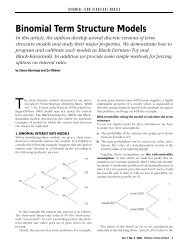
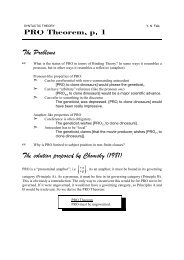
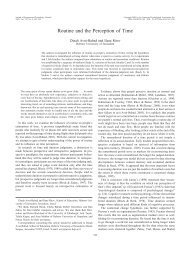
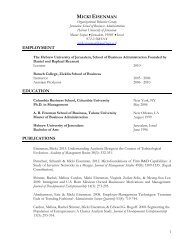
![CV [PDF] - Pluto Huji Ac Il](https://img.yumpu.com/18174585/1/190x245/cv-pdf-pluto-huji-ac-il.jpg?quality=85)
